Today I’m interviewing the protagonist, Commander Hanno Knighthead, from my story, “The Cometeers,” scheduled for release by Gypsy Shadow Publishing in early September.
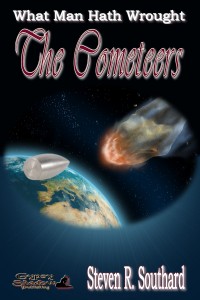 Poseidon’s Scribe: Greetings, Commander Knighthead, and welcome to our blog—er, newspaper. I’m Poseidon’s—I mean, I’m Steven Southard, the Editor in Chief.
Poseidon’s Scribe: Greetings, Commander Knighthead, and welcome to our blog—er, newspaper. I’m Poseidon’s—I mean, I’m Steven Southard, the Editor in Chief.
Commander Knighthead: Thank you, Mr. Southard. I’m pleased to be here.
S.S.: Can you tell our readers about your upcoming mission?
CDR K.: Well, I think most people already know we’re travelling into outer space to blast Comet Göker with gunpowder to divert it away from the Earth.
S.S.: Can you remind our readers when the comet is due to collide with Earth, if not diverted in time?
CDR K.: Yes, on September 9th.
S.S.: Of this very year, 1897, is that correct?
CDR K.: Yes.
S.S.: Very interesting. Let’s get to some personal matters. How old are you and where did you grow up?
CDR K.: I’m 35 and I was born and raised at a farm near Emporia, Kansas. Born one year after Kansas became a state, in fact.
S.S.: But you didn’t stay to work the farm when you grew up?
CDR K.: No. After reading Moby-Dick, Two Years Before the Mast, and other such books, I felt the call of the sea. I received an appointment to the Naval Academy in Annapolis, and graduated from there in ’84.
S.S.: Pardon me for asking, but how did your parents pick your first name—Hanno? It’s most unusual. Is it a family name?
CDR K.: (laughs) No. My name is Hanover. Hanno is just a nickname.
S.S.: What was your most recent command in the Navy before being selected for the comet mission?
CDR K.: I was captain of the torpedo boat, USS Hopkins, home-ported in Newport, Rhode Island.
S.S.: Are you married, Commander?
CDR. K.: No.
S.S.: Come now. A good-looking man like you, in the prime of health, with a successful Navy career going? I’m sure there are scores of young ladies who—
CDR. K.: I preferred not to subject a wife to the difficulties of dealing with my life at sea.
S.S.: I understand, though our young, female readers will likely wish you’d make an exception. How were you chosen for this mission?
CDR K.: That was the shocking part. I’m told President McKinley selected me personally.
S.S.: Really? Why? Did the President know you?
CDR K.: No. When I had the opportunity to meet with him in the White House, he told me he wanted someone able to lead a small group of men in a confined craft on a long mission. I’m honored he chose me.
S.S.: As you should be. I understand the rest of your crew for the comet mission was hand-picked as well.
CDR K.: Yes, hand-picked for their expertise in various disciplines needed on our mission—explosives, mechanics, orbital mathematics, comet geology, physics, and other specialties. They’re from the nine countries that contributed the most to finance the expedition.
S.S.: A multi-national crew, then. Do you foresee difficulties in communication?
CDR K.: Not in communication. They all speak English.
S.S.: Your answer suggests you see difficulties of another kind. Do you?
CDR K.: We’re sending twenty three projectiles into outer space, three of them manned. We’re trying to guide the ones filled with gunpowder so they hit a comet travelling very fast, and we’re trying to keep that comet from hitting the Earth. Of course, I see difficulties. I see nothing but difficulties.
S.S.: I meant, do you see problems with your crew, other than communication?
CDR K.: (hesitates before answering) I think it’s no secret that leading a crew of well-educated civilians experts presents different challenges that leading a crew of a few officers and dozens of enlisted men. Having said that, I look forward to the mission and have full confidence every crewman will do his job.
Steven Southard: I know you’re a busy man, so I’ll end here by wishing you and the rest of the Cometeers complete success. The rest of us are depending on you.
CDR Knighthead: Thank you. We won’t let you down.
As a reminder, my story, “The Cometeers,” will be launched in early September. I think you’ll find Commander Hanno Knighthead has, if anything, underestimated the challenges he’ll face on this mission. Challenges imposed on him by—
Poseidon’s Scribe
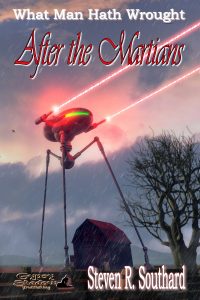 Not a bad idea. Stop reading this blog right now and buy the book.
Not a bad idea. Stop reading this blog right now and buy the book.

![Pageflex Persona [document: PRS0000039_00001]](https://stevenrsouthard.com/wp-content/uploads/2015/10/HidesTheDarkTower-DigitalCover-FINAL2-200x300.jpg)



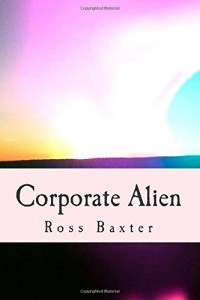
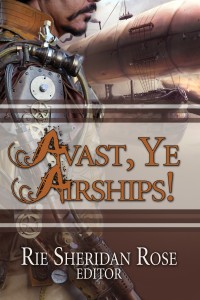
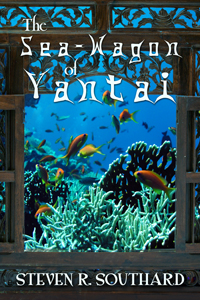
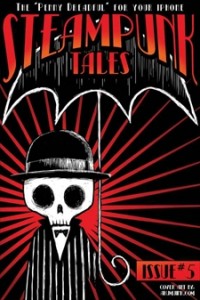
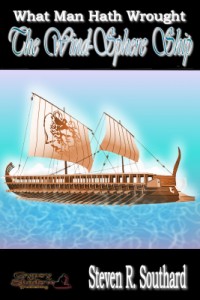

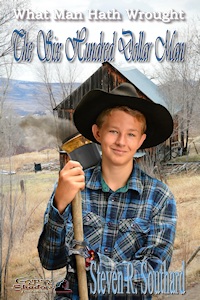

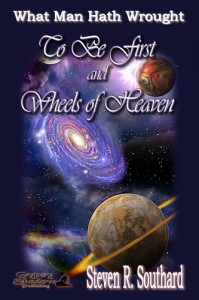
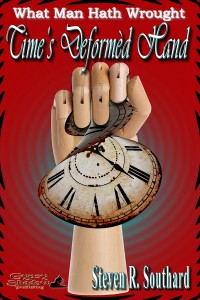
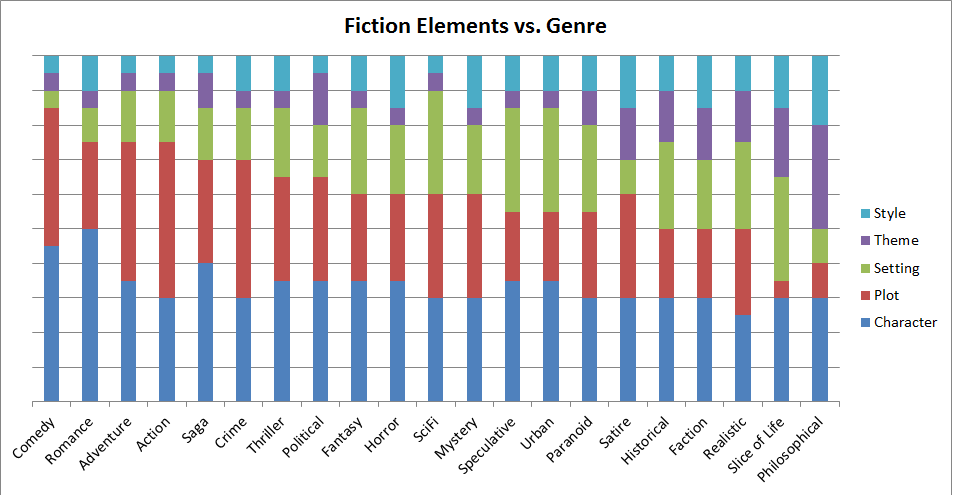
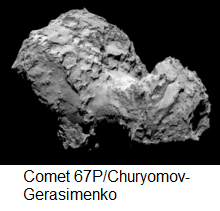
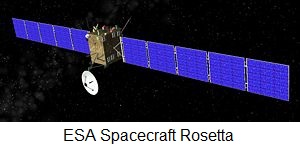
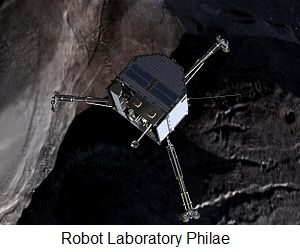 They claim this will be the first time a human-built spacecraft has landed on a comet.
They claim this will be the first time a human-built spacecraft has landed on a comet.